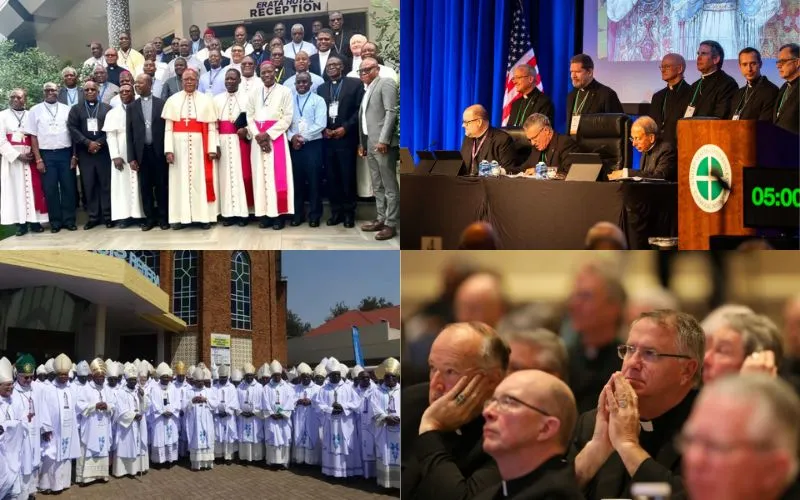Pope Francis had a special place in his heart for religious sisters. He affirmed our role as mothers, sisters, healers, and prophets in a wounded world. He called us to be bold, to go to the peripheries, and to be a living sign of God’s tenderness in places where it is most absent. His words were never just instructions; they were invitations to live the Gospel with radical authenticity.
He saw and valued the unique contributions of religious women, who daily navigate the complex realities of faith, culture, and justice. He uplifted our voices, especially in the synodal journey, where our stories, our hopes, and our struggles were not only heard but respected and integrated into the heart of the Church.
That quote from Pope Francis, "You are women of the Church... who are female, like Mary. This is your place. Being Church, forming the Church, being with Jesus, with tenderness, to accompany the Church and help her grow," is a deeply affirming and empowering message. It tells me that I am not on the margins of the Church; I am the Church. Like Mary, my femininity is not secondary, but sacred and central. My culture, my faith, and my presence are vital to the heart and life of the Church.
He was a tireless advocate for the marginalized, especially migrants and refugees, whom he treasured deeply in his heart.
In the honor of Pope Francis, I renew my commitment to prayer
(Story continues below)
My first personal encounter with Pope Francis was in 2015, before his visit to Kenya. We met at a gathering for migrants and refugees. I had the immense grace of shaking his hand. He smiled and gently asked me to teach him a few words in Kiswahili, saying he wanted to greet Kenyans in their own language during his visit. I later wrote him a short note in Kiswahili with a greeting and words of thanks. That small but meaningful exchange remains etched in my heart. It reminded me of his humility, his genuine love for people on the move, and his desire to walk with them as a true shepherd.
In the face of challenges, he reminded us to keep our gaze fixed on our mission. These words comfort me, especially in moments of resistance or invisibility. They remind me that my selfless service, though often hidden, carries the power of Christ’s love. His encouragement helps me to remain rooted, steadfast, and joyful in my vocation.
What remains with me now, in mourning, is not just the memory of his smile or his words, but the legacy of his love a love that looked like Christ: compassionate, humble, and courageous. In his honor, I renew my commitment to prayer, to community, and to justice, especially for those on the margins. As he reminded us: “Let yourselves be loved by Jesus.” That, more than anything, is what he embodied a shepherd who let himself be loved, and in turn, taught the world how to love.
As we reflect on the passing of Pope Francis, we are reminded that his legacy is not confined to grand buildings or lofty speeches, but rather to the countless lives he touched, especially those living on the margins. His life was a living testament to what it means to love as Christ did selflessly, humbly, and radically.
The smiling Pope is no longer with us but…
Though the smiling Pope is no longer with us, his spirit lives on in each of us who carry his message forward. In our ministries, in our service, and in our hope, we are called to continue his work bringing healing where there is pain, justice where there is oppression, and love where there is division.
Pope Francis will always be a guiding light, and in his honor, we remain committed to following the path he set before us walking in love, living with compassion, and building a Church that embraces all.
May his memory continue to inspire us to love boldly and serve faithfully, ever reminding us of the words he so often shared: “Let yourselves be loved by Jesus.” For in that love, we find our strength and purpose, and through it, we are called to transform the world.
Agnes Aineah is a Kenyan journalist with a background in digital and newspaper reporting. She holds a Master of Arts in Digital Journalism from the Aga Khan University, Graduate School of Media and Communications and a Bachelor's Degree in Linguistics, Media and Communications from Kenya's Moi University. Agnes currently serves as a journalist for ACI Africa.








